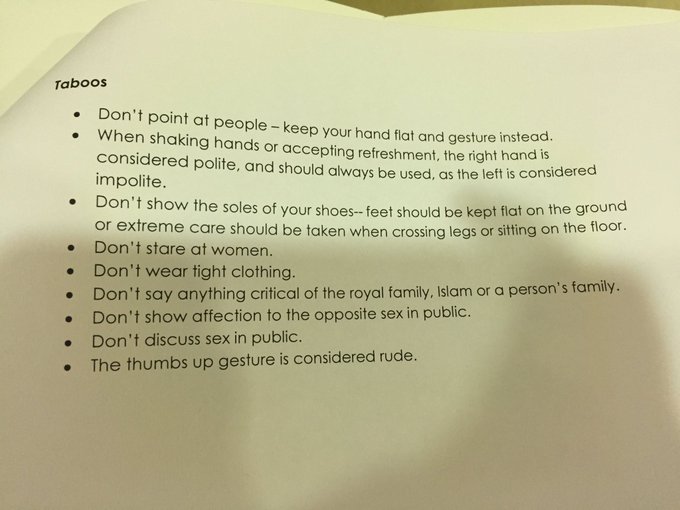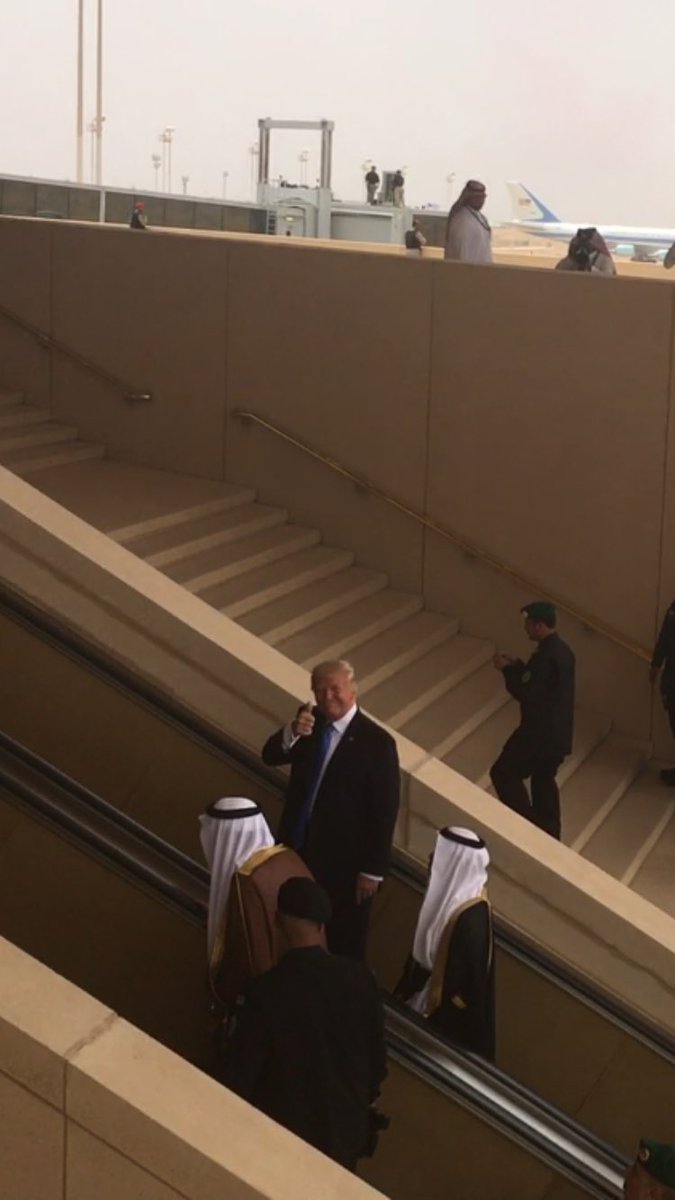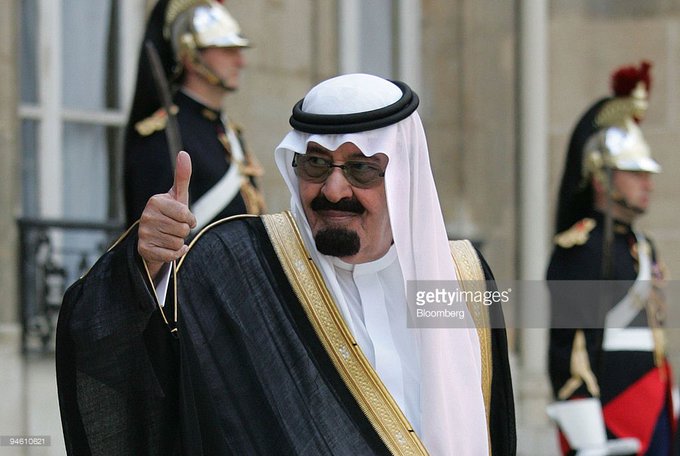Aaron Blake, washingtonpost.com; via MA on Facebook
At 12:37 a.m., Eastern time, Politico's Annie Karni noted that President Trump may need to rein in his favorite gesture — the thumbs-up — during his trip to Saudi Arabia. Briefing materials from the U.S. embassy, after all, note that the "gesture is considered rude."
The tweet was fortuitous, and Trump apparently didn't get the memo. Less than three hours later, he gave Bloomberg News's Jennifer Jacobs that seemingly "rude" gesture while riding an escalator.
But in this case, the embassy appears to have been in the wrong — not Trump. There is actually plenty of reason to believe that a gesture that has been interpreted as offensive in some parts of the world — and even the Arab world — wouldn't cause Saudis to bat an eye.
Saudi Arabia's King Salman welcomed President Trump to the capital Riyadh. (Reuters)
Back in the early part of the most recent Iraq War, there was debate about the thumbs-ups Iraqis were giving Americans as they drove through the streets. Were the American troops who thought they were being celebrated actually being given the equivalent of the middle finger?
Turned out, maybe not. The Defense Language Institute noted at the time:
This gesture, expressing connotations of “I am winning,” historically is offensive to many Arabs. After the Gulf conflict, however, Middle Easterners of the Arabian Peninsula adopted this hand movement, along with the OK sign, as a symbol of cooperation toward freedom.
Some Saudis seemed perplexed at the briefing materials' interpretation of the gesture.
And, as The Washington Post's Loveday Morris points out, King Abdullah, the late Saudi Arabian leader, even flashed a thumbs-up during a visit to France in 2007.









No comments:
Post a Comment